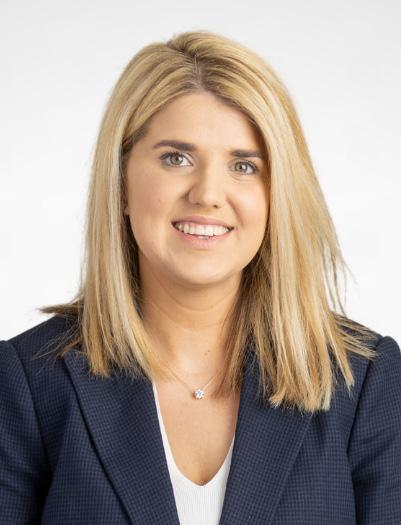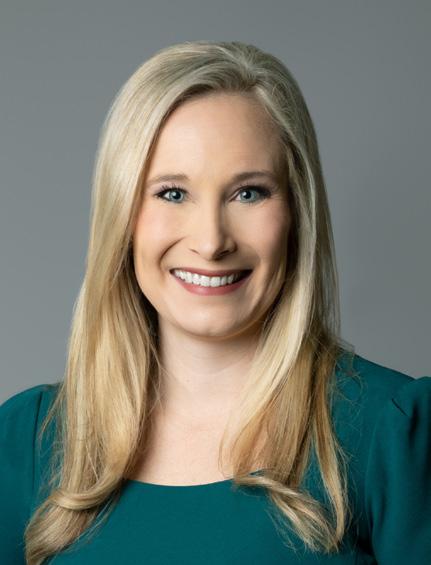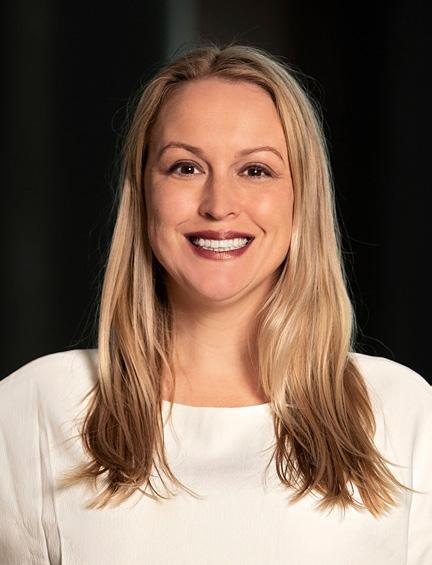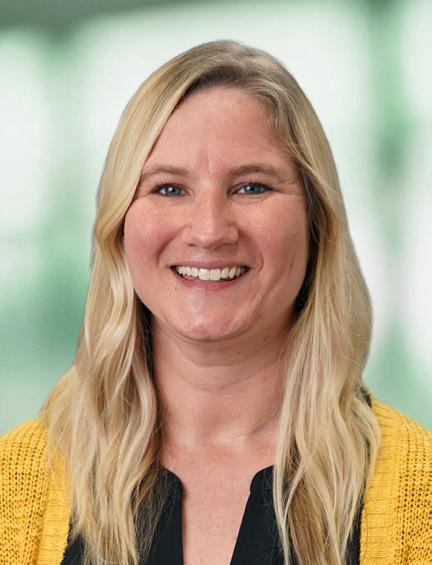
5 minute read
She’sthe Boss
In Arkansas, pathways opening up for female leaders
in 2020, Forbes triumphantly reported its Fortune 500 contained the highest number of companies with a female CEO in the history of that storied list, the culmination of 20 years where Fortune 500 women CEOs multiplied 18 times over.
That’s the good news.
The bad news: The record-breaking representation still amounted to only 37 female chief executives. As the magazine’s editors themselves admitted, “women still aren’t getting as many opportunities as their male counterparts.”
Progress has indeed come in the area of women advancing to the top of corporate America. But given how much ground there is to make up the numbers still aren’t awe-inspiring. A 2022 analysis by Equilar found growth of women in executive roles grew at a 6.9 percent pace between 2016 and 2021, nearly double that of the previous five years, yet only one-seventh of top corporate jobs were held by women, despite making up half the workforce.
Moreover, such progress of women to the C-Suite is spotty by industry. Utilities and health care boast relatively impressive percentages of female bosses – 21 percent and 16 percent, respectively – while in energy (9 percent) and financial services (12 percent), not so much.
In Arkansas, female executives make up a mixed bag of opportunities and challenges when it comes to reaching, and excelling, in leadership roles. But ask those who reside in the upper echelons of leadership, and they will tell you things appear to be changing.
Ashley Sims, chief financial officer for Rock Dental Brands in
Little Rock, said she’s worked for a series of progressive-minded companies that invested in her success, which she takes as an indication of things evolving for the better in the workplace.
“Speaking for myself, I have had a really good experience with male leadership not treating me any different due to my gender,” she said. “That could be an exception to the rule, but I do think that things are turning quite a bit.”
By Dwain Hebda Ashley Sims
Sims, who’s been with the company for six years and in the CFO job for four, said she’d been drawn to leadership roles throughout her life, and these experiences have translated well to the corporate world.
“A lot of confidence comes from being in leadership positions in my church, in my school, in my home. There was never a doubt that I could do that,” she said. “I was very encouraged to teach young kids at church, for example, and that does carry over into your college and post-college years. I’ve always had book smarts, but that can only get you so far; you need confidence to step in, raise your hand and strive for things in the workplace.”
That said, having all the confidence in the world won’t make things happen in the corporate world without the grit and drive to overcome and succeed, Sims said.
“It starts with raising your hand for things,” she said. “People are hardly ever going to keep work from you if you’re volunteering for it. I’ve done a lot of grunt work in my career, and I’ve also sat up here late at night with executives and learned from them how they were thinking. You’re hardly ever going to be turned away if you’re willing to do the grunt work for someone, even if it’s not your department.
“That is a ton of sacrifice, so you have to kind of think about what’s important to you, but from my perspective, that’s how you learn right out of the gate.”
Molly Rawn, CEO of Experience Fayetteville, was hired into her role in 2016 and given the reins at a time the organization was struggling to find its footing. She said that vote of confidence, as well as the mentor-rich environment she discovered Northwest Arkansas to be, were crucial to her success in the role.


“My commission at the time put a tremendous amount of faith in me, and I had a lot of, I don’t want to say free rein because I don’t to make it sound like I wasn’t aware that there are parameters,” she said. “But they really were not prescriptive in how and what I was to do. They just knew, ‘Hey it’s not working the way it is. Figure it out. Let’s make it work.’
“I also realize how lucky I was; here in Northwest Arkansas we have leaders like Kalene Griffith in Bentonville, my counterpart there, who was so tremendously kind to me and so giving of her time to tell me here’s what’s what. Gretchen Hall, who was in Little Rock at the time, was the same way. They made themselves so available to me, who was just entering a whole new industry. I have not forgotten how giving of their time they were.”
Even though her own career has been a case study for female empowerment in the workplace, Rawn isn’t naïve to the strides that still have to be made in various corners of society.
“I think our industry is pretty balanced, but where I do feel there is a real difference is in our state in politics and civic leadership,” she said. “What I mean by that is, Arkansas is unique in that the destination marketing organizations like ours are public entities established through state legislation. That means we interact a lot with elected officials and with state government. And in those places, I feel there aren’t as many women.”
Staci Gasaway, CFO of Seal Solar in North Little Rock, has spent much of her career in male-dominated fields such as construction. At each stop, she’s ascended to the CFO role, but not without taking some lumps along the way.

“There have been times in my career I had to struggle, initially, to gain respect,” she said. “That didn’t come from the owners, but from certain people who still had that male-dominated mindset.
It didn’t take long to earn that respect, but I did have to overcome it.”
In her professional roles, Gasaway said having a female at the top of the company organizational chart is significant, as it gives other employees a role model to build their careers after. It’s something she tries to emulate in her own sphere within the company.
“Heather Nelson is the president and co-owner of this company,” Gasaway said. “She really tries to help everyone, but she does focus on mentoring and providing opportunities to women. There’s actually more women here at Seal Solar than you might think.
“Looking back, I can see certain people who have given me opportunities to get where I’m at. Passing that along is rewarding, and the people that you mentor are very appreciative. That is probably one of the most rewarding parts of being in a management or executive level position.”
Katie Beck, chief executive officer with the Arkansas Hospitality Association, is another staunch advocate for mentorship as a means for advancing more women to roles of leadership. Prior to her current role, she worked in the cutthroat political arena at both the state and federal levels and saw the value of a professional support system up close.
“I was very fortunate in D.C. to be surrounded by a group of really great friends and really great mentors and people who were incredibly supportive,” she said. “In working with other Arkansans in our federal delegation, I could see how very lucky Arkansas was to have such a strong group of leaders from the state representing them. I was fortunate to be surrounded by people who wanted to see success and growth and were not only friends but mentors.”
Beck’s on-the-job training in Washington parlayed into one of the more challenging professional assignments one could have. As a member of Gov. Asa Hutchinson’s communications team, she kept various constituencies informed during the pandemic, including the hospitality industry. Now, at just 34 years of age and having never been an operator in the restaurant industry, she’s helping lead the industry back from the brink. That in itself shows old attitudes toward who can lead effectively are changing in Arkansas.
“There are so many female-owned hospitality businesses, and I’m fortunate to be able to get to know so many of them throughout the state,” she said. “Many of my female peers in other associations are incredible CEOs. My predecessor in this role was female, and she had been in the role for over 25 years. I think that says incredible things about the equality of women in the workplace.”






